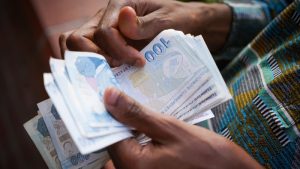Opposition leader wins Ghana election as vice-president concedes

Unlock the Editor’s Digest for free
Roula Khalaf, Editor of the FT, selects her favourite stories in this weekly newsletter.
Ghana’s ruling party candidate has conceded defeat in the country’s presidential election after early results indicated an insurmountable lead for opposition leader and former president John Mahama, as voters opted for change following years of economic turmoil.
Mahamudu Bawumia, who has been vice-president since 2017, said Mahama won the vote “decisively”, based on data from the incumbent New Patriotic party. The opposition National Democratic Congress also won the parliamentary vote to gain a majority in the 275-seat national assembly, the tallies suggested.
Bawumia’s early concession raised hopes of an orderly transition of power in the west African country of 34mn people. But Mahama, who was president from 2012 until 2017, will face the daunting task of trying to fix Ghana’s economic woes.
Bawumia, who said Ghanaians voted for “change”, called Mahama to congratulate him on his successful campaign. “I am making this concession speech before the electoral commission’s official announcement to avoid further tension and preserve the peace of our country,” Bawumia said.
“It is important that the world investor community continues to believe in the peaceful and democratic character of Ghana. These are our most important assets. Ghana is more than our individual political ambitions.”

The Electoral Commission of Ghana has yet to officially announce results. Local media outlets said less than a quarter of the votes had been collated but they indicated that Mahama was on course to win with more than 51 per cent of the vote, avoiding the need for a run-off. More than five candidates ran for the presidency.
The early results suggested an emphatic rebuke of the NPP and Nana Akufo-Addo, who has served two terms as president, for its management of the economy. Eight years ago the NPP campaigned on a platform of fiscal responsibility that helped it to access international debt markets when it won power. But it defaulted on its debt obligations in 2022 amid historically high levels of inflation and a collapse in its cedi currency.
Last year Ghana secured a $3bn bailout programme from the IMF, its 18th with the Washington-based fund since it became a member in 1957.

A rise in living costs and a backlash over illegal gold mining were the key election issues as citizens held regular protests in the months leading up to the vote. Bawumia, as head of the government’s economic management team, struggled to articulate what he would do differently if he won the election.
“The governing NPP’s popularity has declined due to the ripple effects of an ongoing economic crisis [while] the government’s increasingly populist rhetoric has failed to shore up public support,” Mucahid Durmaz, senior analyst at risk intelligence company Verisk Maplecroft, said before the vote.
Mahama, who was president from 2012 until 2017, has vowed to renegotiate the IMF programme in a bid to work out better debt repayment terms and reduce tax obligations for companies. The 66-year-old will be ineligible at the next election in 2028.
Saturday’s largely peaceful vote cemented Ghana’s reputation as a bastion of stability in a region that has witnessed several coups in recent years. Deputy electoral commissioner Samuel Tettey said voter turnout was about 61 per cent, sharply down from 79 per cent in the 2020 election, suggesting growing apathy with the democratic process.
#Opposition #leader #wins #Ghana #election #vicepresident #concedes




